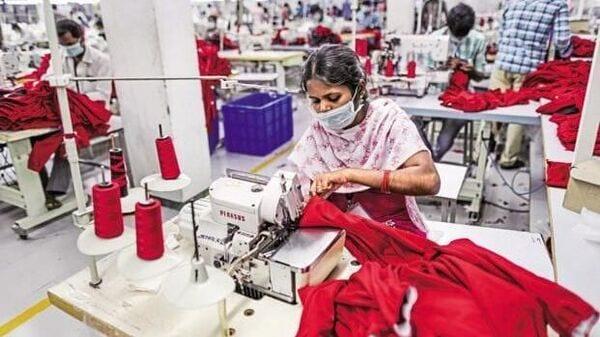phmacao vip
None
The tech company, Evolv, revealed in a public filing that it “received a voluntary document request from the U.S. Attorney’s Office of the Southern District of New York” on Nov. 1. It was unclear what the request was seeking. The U.S. Attorney’s Office in Manhattan declined to comment on the request, which was first reported by the Daily News. In an emailed statement, a spokesperson for Evolv said the company was “pleased to cooperate with all government agencies and regulators who request information from our company.” The Massachusetts-based tech company, whose scanners have also been used at sports stadiums and schools, has faced allegations of misconduct. Last month, Evolv’s board of directors fired its chief executive following an internal investigation that found certain sales had been “subject to extra-contractual terms and conditions.” On Tuesday, the company announced it had resolved a previous probe launched by the Federal Trade Commission last year over allegations of deceptive marketing practices. The company is also under separate investigation by the Securities and Exchange Commission. Despite the legal and regulatory scrutiny, New York City Mayor Eric Adams announced a pilot program this summer to bring a handful of scanners to the city's subways to deter gun violence. The initiative drew immediate criticism from civil liberties groups who said the searches were unconstitutional, along with questions about its efficacy. In October, the city revealed the scanners did not detect any passengers with firearms — but falsely alerted more than 100 times. At the time, a spokesperson for the New York Police Department said it was still “evaluating the outcome of the pilot” and had not entered into any contract with Evolv.WASHINGTON — Donald Trump threatened the United States’s closest neighbours with big tariffs this week, in a move that has reminded many of the unpredictable tactics the president-elect deployed during his first tenure in the White House. Trump said Monday he would use an executive order to impose 25 per cent tariffs on all goods coming from Canada and Mexico until the two countries stop drugs and migrants from illegally crossing the U.S. border. The announcement, made on Truth Social, brought swift responses from officials and industry in both countries who are bracing for chaos during Trump’s second tenure. He has long used the threat of import taxes to pressure other countries to do his bidding, saying this summer that “the most beautiful word in the dictionary is ‘tariff.'” It’s unlikely the move would violate the Canada-U.S.-Mexico Agreement, which was negotiated during the first Trump administration. Laura Dawson, an expert on Canada-U. S. relations and the executive director of the Future Borders Coalition, said the president can impose tariffs under his national security powers. This type of duty has a time limit and can only be made permanent through Congressional approval, but for Trump, national security powers are like a “get out of jail free card,” Dawson said. “This is exactly what happened in the last Trump administration,” Dawson said. “Everyone said, ‘Well, that is ridiculous. Canada is the U.S.’s best security partner. What do you mean our steel and aluminum imports are somehow a source of insecurity?'” But within the global trade system, she said, no country challenges another’s right to define their own national security imperatives. Trump’s first administration demonstrated how vulnerable Canada is to America’s whims when the former president scrapped the North American Free Trade Agreement. The U.S. is Canada’s closest neighbour and largest trading partner. More than 77 per cent of Canadian exports go to the U.S. Negotiation of CUSMA, commonly dubbed “the new NAFTA,” was a key test for Ottawa following Trump’s first victory. The trilateral agreement is up for review in 2026 and experts suspect this week’s tariff announcement is a negotiating tactic. Scott Bessent, Trump’s pick for treasury secretary, said in a recent op-ed that tariffs are “a useful tool for achieving the president’s foreign policy objectives.” “Whether it is getting allies to spend more on their own defence, opening foreign markets to U.S. exports, securing co-operation on ending illegal immigration and interdicting fentanyl trafficking, or deterring military aggression, tariffs can play a central role.” During the initial CUSMA negotiations in 2018, Trump floated the idea of a 25 per cent tariff on the Canadian auto sector — something that would have been crippling for the industry on both sides of the border. It was never implemented. At the time, he did use his national security powers to impose a 25 per cent tariff on steel and 10 per cent tariff on aluminum imports, casting fear of an all-out trade war that would threaten the global economy. The day after announcing those levies, Trump posted on social media “trade wars are good, and easy to win.” Former U.S. trade representative Robert Lighthizer recounted in his book that the duties sent an “unmistakable signal that business as usual was over.” “The Trump administration was willing to ruffle diplomatic feathers to advance its trade agenda.” It led to a legendary clash between Prime Minister Justin Trudeau and Trump at the G7 in Quebec. Trudeau said Canada would impose retaliatory measures, saying the argument that tariffs on steel and aluminum were a matter of national security was “kind of insulting.” Trump took to social media, where, in a flurry of posts he called Trudeau “very dishonest and weak.” Canada and other countries brought their own duties against the U.S. in response. They targeted products for political, rather than economic, reasons. Canada hit yogurt with a 10 per cent duty. Most of the product impacted came from one plant in Wisconsin, the home state of then-Republican House Speaker Paul Ryan. The European Union, Mexico and Canada all targeted U.S. whiskey products with tariffs, in a clear signal to then Republican Senate Majority Leader Mitch McConnell and his home state of Kentucky’s bourbon industry. Ultimately, Canada and Mexico were able to negotiate exemptions. Carlo Dade, the director of trade and trade infrastructure at the Canada West Foundation, said Trump is returning to the White House with more experience and a plan. But he suspects Americans will not like the blow to their bank accounts. Trump’s new across-the-board tariff strategy would not only disrupt global supply chains, it would also cause a major shakeup to the American economy. It’s unclear if Trump will go through with them, or for how long, after campaigning on making life more affordable and increasing the energy market. “I think it will be short-term,” Dade said. “The U.S. can only inflict damage on itself for so long.” This report by The Canadian Press was first published Nov. 26, 2024. — With files from The Associated Press Kelly Geraldine Malone, The Canadian Press
Ken-Betwa project: Bringing rivers closer
InventionHome® Inventor Creates Residential and Commercial Sprinkler System for Reducing the Spread of Wildfires
- Previous: phmacao 777
- Next: phmacao legit




